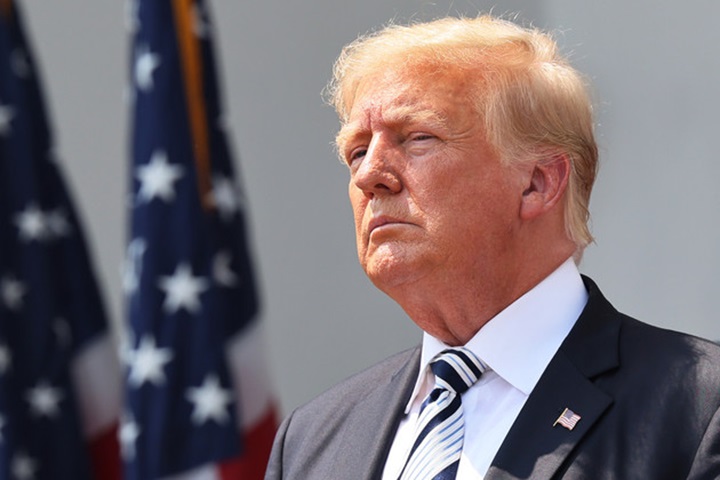The recent victory of Donald Trump in the United States presidential election has raised concerns among economic analysts about its potential impact on global markets, including Nigeria’s inflation. While it is still early to predict the full implications of his policies, experts are pointing to several key areas where Trump’s win could influence Nigeria’s inflationary trends, especially given the interconnectedness of global markets and economies.
US Economic Policies and their Global Impact
As the President of the United States, Donald Trump is expected to implement economic policies that could have significant ramifications for global financial markets. Some of the major areas of concern for analysts include trade relations, the strength of the US dollar, and the US Federal Reserve’s interest rate decisions.
One of the most likely impacts of Trump’s victory on Nigeria’s economy is related to trade policies. Throughout his campaign and tenure, Trump has advocated for protectionist trade measures, such as imposing tariffs on imports from China and other nations. This could potentially lead to a slowdown in global trade, particularly between the US and major trading partners, including Nigeria. The resulting trade disruptions could affect Nigeria’s exports, especially in key sectors such as oil and agriculture, which are vulnerable to fluctuations in global demand and trade conditions.
Moreover, Trump’s policies could lead to increased costs for goods imported into Nigeria, especially if the US implements tariff policies that make products more expensive worldwide. This could feed into inflationary pressures in Nigeria as businesses pass on these higher costs to consumers. The ripple effect of higher prices for imported goods could also extend to raw materials and intermediate goods that are critical for local manufacturing.

The Impact of US Dollar Fluctuations
The US dollar is the world’s primary reserve currency and a key driver of global trade and investment. The outcome of the US election, particularly if Trump maintains a strong stance on fiscal policy and monetary expansion, could influence the strength of the US dollar. A stronger dollar could increase the cost of imports for Nigeria, which heavily relies on foreign goods and services, particularly for fuel and manufacturing inputs. A more expensive dollar could result in a rise in the cost of living, especially for Nigerians who depend on imported goods.
Additionally, if the US dollar strengthens significantly due to Trump’s policies, it could exert downward pressure on the value of the naira, leading to higher import costs and fueling inflation in the domestic economy. This would exacerbate the existing challenge of a weak naira, which has struggled to stabilize in recent years. As the dollar strengthens, it would likely worsen the exchange rate, creating a cycle of higher import prices that could further escalate inflation.
### Oil Prices and the Nigerian Economy
Another significant factor is the potential impact of Trump’s policies on oil prices. During his first term, Trump’s administration pursued a strategy of energy dominance, which included increasing US domestic oil production and reducing reliance on foreign oil imports. Although this may have initially led to a drop in global oil prices, there is concern that any shift in the US’s energy strategy could have far-reaching effects on oil-producing countries like Nigeria.
If Trump’s policies lead to a reduction in global oil supply or price volatility, Nigeria could face a situation where the price of oil fluctuates sharply. Since oil exports account for a large portion of Nigeria’s revenue, changes in oil prices can have significant consequences for the country’s economic stability. Higher oil prices could push inflation upward, while a drop in oil prices could undermine government revenues, leading to further economic challenges.
Additionally, Nigeria’s reliance on oil means that inflation is often closely linked to global oil prices. Any sharp changes in these prices, which could be influenced by US policies on oil production and trade, could have immediate effects on Nigeria’s inflation rate, especially when the country is already grappling with rising food and fuel prices.
### Domestic Factors and Inflation
While Trump’s victory may influence global economic dynamics, it is important to note that domestic factors will still play a critical role in shaping Nigeria’s inflation trajectory. Nigeria has been dealing with inflationary pressures caused by several factors, including high energy prices, food insecurity, and structural economic weaknesses. The Nigerian government’s fiscal and monetary policies, as well as its ability to address supply-side constraints and enhance domestic production, will remain pivotal in managing inflation.
The Central Bank of Nigeria (CBN) will likely continue to monitor the global economic landscape, including the impact of US policies, while adjusting its interest rates and exchange rate policies to manage inflation. However, analysts believe that external factors, such as US policies under Trump’s leadership, will add an additional layer of complexity to Nigeria’s inflation challenges.
### Conclusion
While it is still uncertain what long-term impacts Trump’s victory will have on Nigeria’s inflation, analysts agree that the potential for a ripple effect on the Nigerian economy is significant. Factors such as changes in global trade, fluctuations in the US dollar, and the future direction of oil prices will be key areas of concern. Given Nigeria’s vulnerability to external shocks, it is essential for policymakers to remain vigilant and responsive to the evolving global economic environment to mitigate the risks of rising inflation.
Ultimately, Trump’s policies, combined with domestic economic reforms, will likely determine the extent to which Nigeria’s inflation rate is affected in the coming years. The country must continue to build resilience against external economic pressures while focusing on structural reforms that reduce its dependence on oil and promote domestic economic growth.
Support InfoStride News' Credible Journalism: Only credible journalism can guarantee a fair, accountable and transparent society, including democracy and government. It involves a lot of efforts and money. We need your support. Click here to Donate
